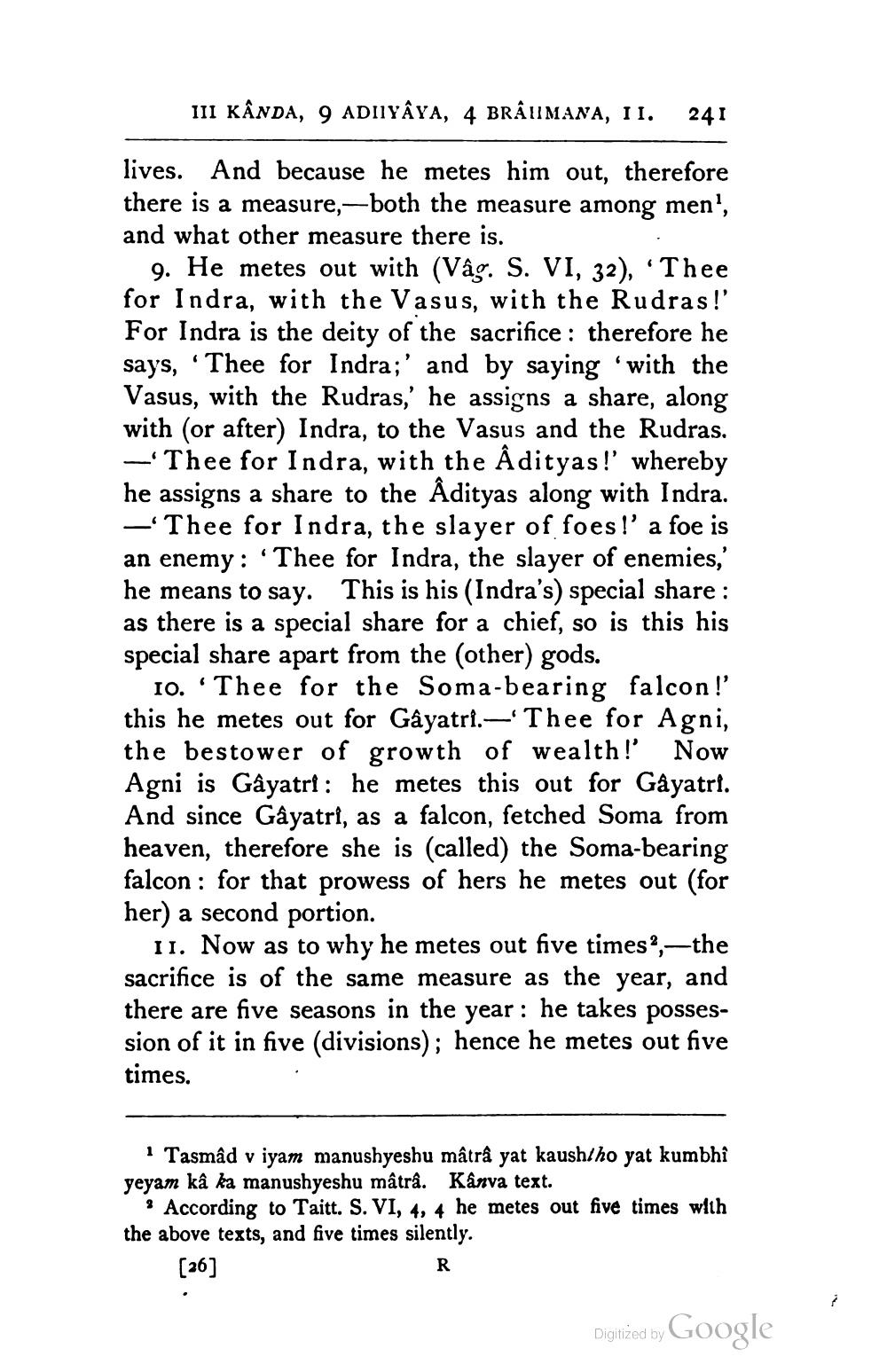________________
111 KÂNDA, 9 ADIYAYA, 4 BRÂUMANA, 11. 241
lives. And because he metes him out, therefore there is a measure,—both the measure among men', and what other measure there is.
9. He metes out with (Vág. S. VI, 32), 'Thee for Indra, with the Vasus, with the Rudras!' For Indra is the deity of the sacrifice : therefore he says, 'Thee for Indra;' and by saying with the Vasus, with the Rudras,' he assigns a share, along with (or after) Indra, to the Vasus and the Rudras.
-'Thee for Indra, with the Adityas!' whereby he assigns a share to the Adityas along with Indra.
—'Thee for Indra, the slayer of foes!' a foe is an enemy: 'Thee for Indra, the slayer of enemies,' he means to say. This is his (Indra's) special share : as there is a special share for a chief, so is this his special share apart from the (other) gods.
10. 'Thee for the Soma-bearing falcon!' this he metes out for Gayatri.—'Thee for Agni, the bestower of growth of wealth! Now Agni is Gayatri : he metes this out for Gayatri. And since Gâyatri, as a falcon, fetched Soma from heaven, therefore she is (called the Soma-bearing falcon: for that prowess of hers he metes out (for her) a second portion.
11. Now as to why he metes out five times?,—the sacrifice is of the same measure as the year, and there are five seasons in the year: he takes possession of it in five (divisions); hence he metes out five
times.
1 Tasmâd v iyam manushyeshu mâtrâ yat kaushi ho yat kumbhî yeyam kâ ka manushyeshu mâtrå. Kanva text.
3 According to Taitt. S. VI, 4, 4 he metes out five times with the above texts, and five times silently.
[26]
Digitized by Google




